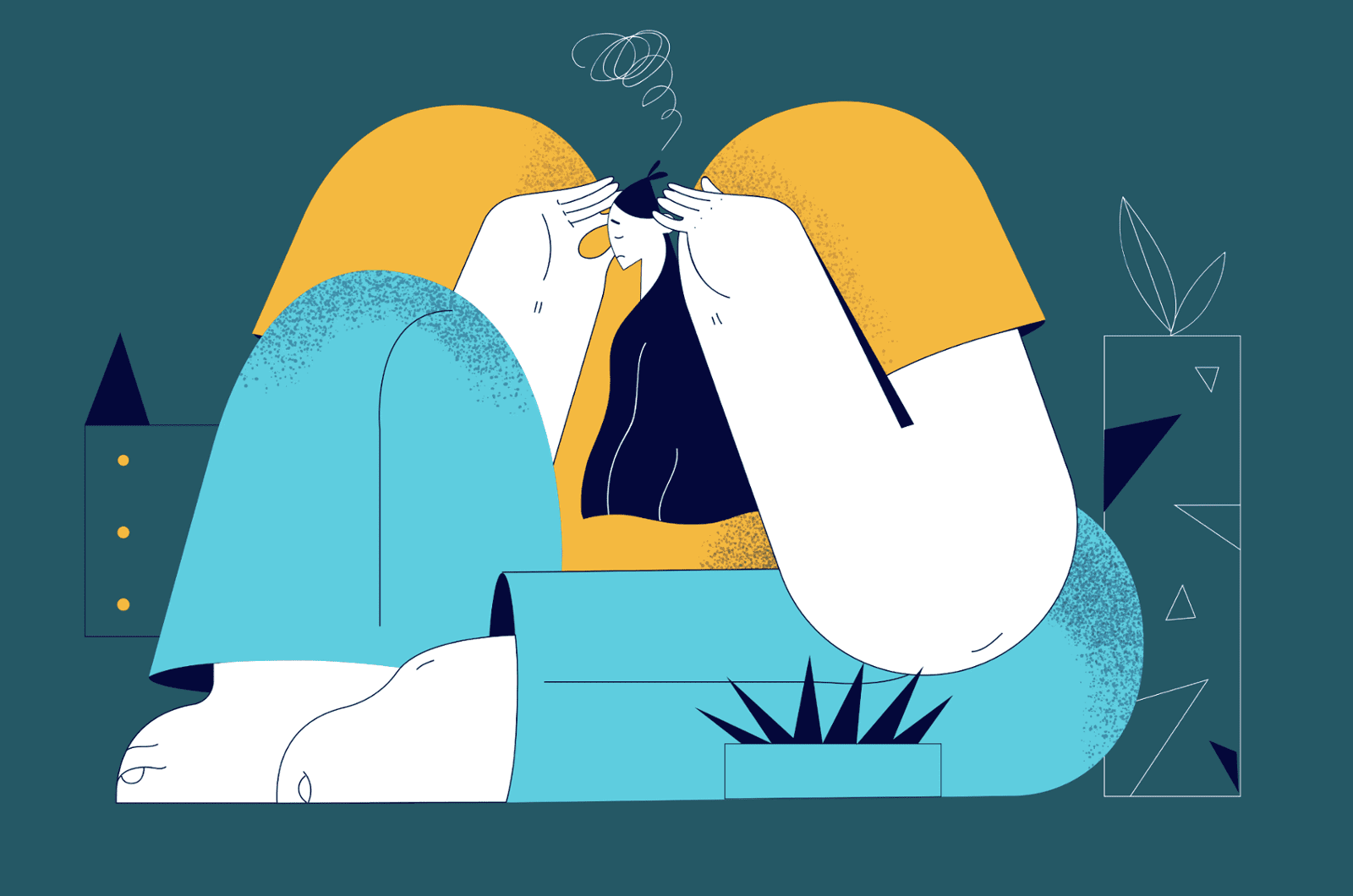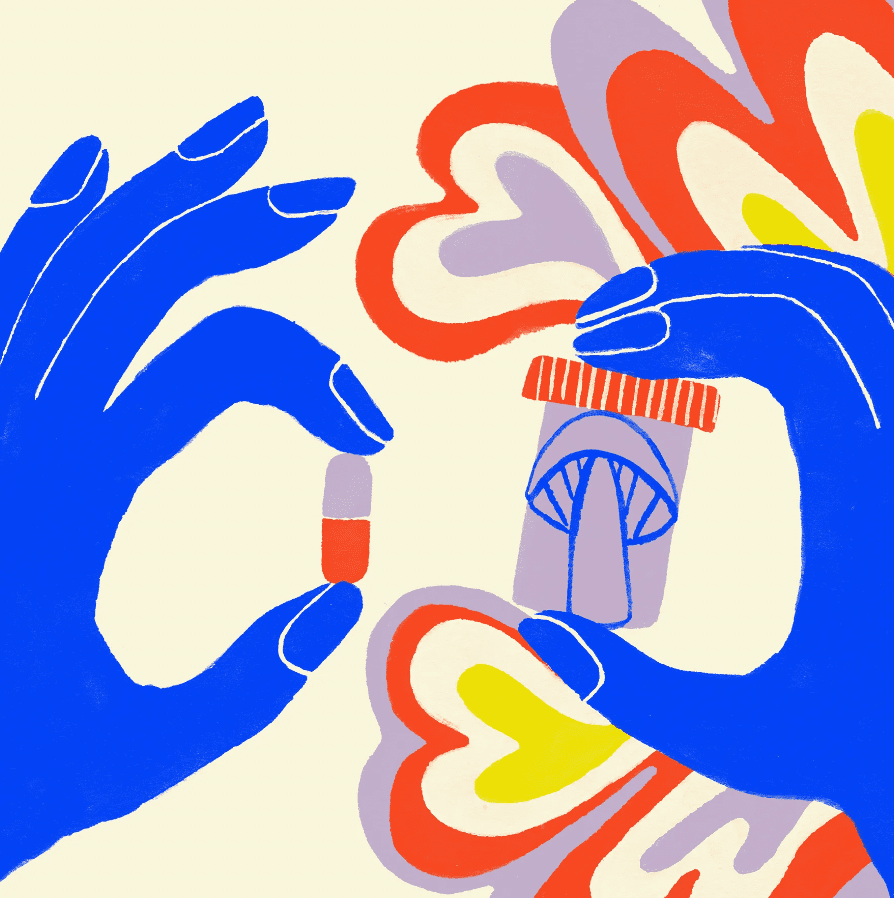Psychedelics as a Viable Alternative for Treating Depression
Author: Nicole Pangborn

Major Depressive Disorder (MDD) is a mood disorder recognized in the Diagnostic and Statistical Manual of Mental Disorders (DSM-5) and characterized by symptoms that include low mood, anhedonia, feelings of worthlessness, and poor concentration (Bains & Abdijadid, 2023). There are a range of treatments available for MDD, including Cognitive Behavioural Therapy, exercise, and medications like serotonin reuptake inhibitors (Qaseem et al., 2016). Although a vast body of research supports the effectiveness of all these treatments, there are still many individuals whose symptoms are not meaningfully improved with treatment. These cases are sometimes classified as “treatment-resistant depression” (TRD) (Kverno & Mangano, 2021). TRD is often associated with greater anhedonia, suicidality, and more lifetime episodes of depression. Given the prevalence of TRD and increased interest in studying and treating those with it, different therapies such as psychedelics are being explored.
Using psychedelics as medicine is actually not a novel concept and has been applied in Indigenous communities for thousands of years (Cornelius, 2023). Also referred to as “spirit” or “sacred” medicines, traditional practices have only recently been introduced to Western medicine and have gained traction as alternative treatments for depression (Celidwen et al., 2023). Common psychedelics used in previous clinical trials (including those in non-Indigenous groups) include lysergic acid diethylamide (LSD), ayahuasca, and psilocybin (Muttoni et al., 2019).
Psychedelics are serotonin receptor agonists and typically inhibit amygdala activity which are thought to potentially induce positive affect in users (Muttoni et al., 2019). Researchers believe that psychedelics may aid depressive symptoms by decreasing connectivity in the Default Mode Network and inflammation in the brain. In recent years, an increasing volume of research has explored psychedelic treatment for depression and yielded some promising results.
For example, one study by Gukasyan et al. (2022) administered psilocybin to patients with unipolar depression at s (20mg/70kg and 30mg/70kg), separated by two weeks. Clinical assessments reported significantly lower depressive symptoms in participants up to 12 months following treatment, with a very large effect size (Cohen’s d="2.4)." Although some participants with more severe baseline depressive symptoms began antidepressant treatment during this trial, their depressive scores at 12-months did not significantly differ from those who did not begin antidepressant treatment.
Other research has used psychedelics to treat dual mood and anxiety symptoms in cancer patients (Griffiths et al., 2016). Up to six months following treatment, clinical symptoms of anxiety and depression were significantly reduced, and patients reported improved quality of life, life meaning, death acceptance, and optimism. Downsides to psychedelic treatment were explored in this research as well, since some individuals receiving higher dosages experienced aversive symptoms such as physical discomfort, psychological discomfort, and vomiting. However, effective treatments like antidepressants can also be associated with uncomfortable physical and psychological symptoms (Ellis, 2023).

The Canadian government has also begun extending efforts to broaden psychedelic research. Just in 2022, the Centre for Addiction and Mental Health (CAMH) received its first ever federal grant to fund research on psilocybin as a treatment for TRD. This will be a clinical trial of 60 participants and will be conducted over 3 years. Even McMaster has its own club dedicated to disseminating scientific research on psychedelic treatment, called the McMaster Psychedelic Society.
As the field continues to grow, it will be interesting to see how psychedelic treatment may extend to other mental and physical disorders, and how it can potentially work in tandem with other current interventions. Additionally, novel research should integrate Indigenous perspectives and work with those communities to better understand historical uses of psychedelics and improve current applications.
Bains, N. & Abdijadid, S. (2023). Major depressive disorder. In StatPearls [Internet], StatPearls. https://www.ncbi.nlm.nih.gov/books/NBK559078/
Celidwen, Y., Sacbajá, A. (2023). Ethical principles of traditional Indigenous medicine to guide western psychedelic research and practice. <i>The Lancet Regional Health – Americas</i>, 18. https://doi.org/10.1016/j.lana.2022.100410
Cornelius, K. (2023). How to fold Indigenous ethics into psychedelics studies. Science. https://www.science.org/content/article/how-fold-indigenous-ethics-psychedelics-studies
Ellis, R. R. (2023). What are the side effects of antidepressants? WebMD. https://www.webmd.com/depression/side-effects-antidepressants
Griffiths, R. R., Johnson, M. W., Carducci, M. A., Umbricht, A., Richards, W. A., Richards, B. D., Cosimano, M. P., & Klinedinst, M. A. (2016). Psilocybin produces substantial and sustained decreases in depression and anxiety in patients with life-threatening cancer: A randomized double-blind trial. Journal of Psychopharmacology, 30(12), 1181–1197. https://doi.org/10.1177/0269881116675513
Gukasyan, N., Davis, A. K., Barrett, F. S., Cosimano, M. P., Sepeda, N. D., Johnson, M. W., & Griffiths, R. R. (2022). Efficacy and safety of psilocybin-assisted treatment for major depressive disorder: Prospective 12- month follow-up. Journal of Psychopharmacology, 36(2). https://doi.org/10.1177/02698811211073759
Kverno, K. S., & Mangano, E. (2021). Treatment-resistant depression: Approaches to treatment. Journal of Psychosocial Nursing and Mental Health Services, 59(9). https://link-gale-com.libaccess.lib.mcmaster.ca/apps/doc/A679578306/AONE?u=ocul_mcmaster&sid=bookmark-AONE&xid=104195c0
Muttoni, S., Ardissino, M., & John, C. (2019). Classical psychedelics for the treatment of depression and anxiety: A systematic review. Journal of Affective Disorders, 258, 11-24.
https://www-clinicalkey-com.libaccess.lib.mcmaster.ca/#!/content/playContent/1-s2.0-S0165032719309127?returnurl=null&referrer=null
Qaseem, A., Barry, M. J., Kansagara, D. (2016). Nonpharmacologic versus pharmacologic treatment of adult patients with major depressive disorder: A clinical practice guideline from the American College of Physicians. Annals of Internal Medicine, 164(5). https://www-acpjournals-org.libaccess.lib.mcmaster.ca/doi/10.7326/M15-2570